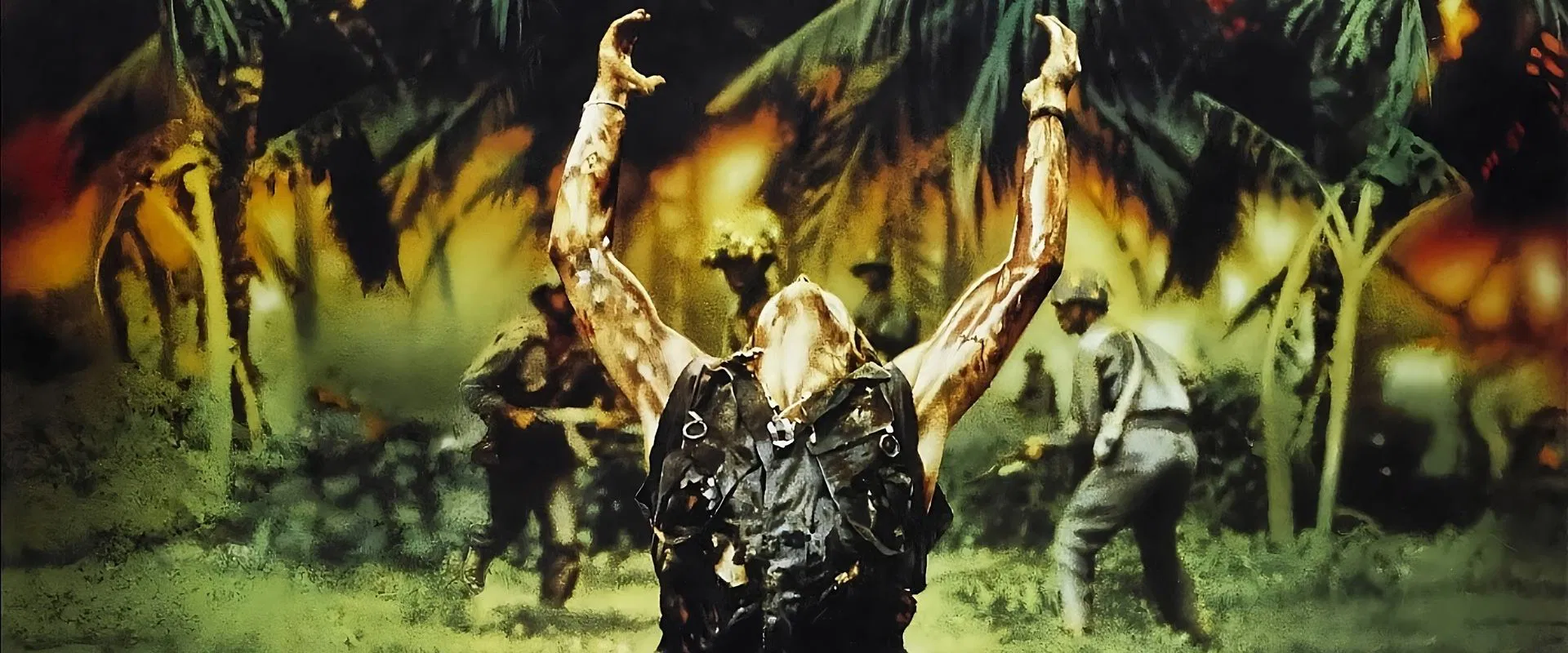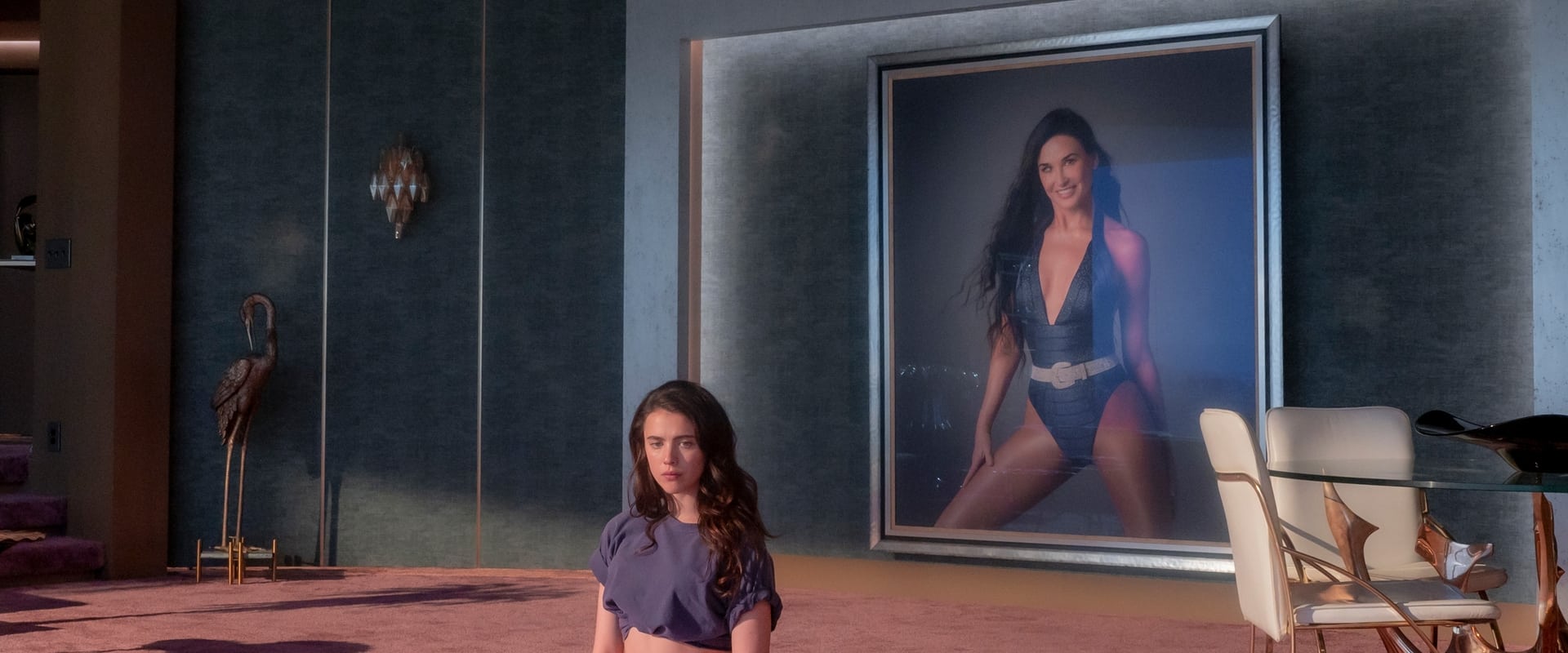Is there a deeper, more queasy thrill in American war movies than Oliver Stone’s Platoon? Here, the old Hollywood war drum—once a loopy rhythm of self-sacrifice and pyrotechnic heroics—gets drowned out by the thump of jungle rot, by the insectile chitter of paranoia, and above all, by a sense that Vietnam will never release those it swallows. Released in 1986—ten years after the helicopter rotors beat their retreat from Saigon—this is a film that refuses to let the audience clap themselves on the back; Stone, carrying the scars and the nightmares of his own tour, rewrites the Book of War as a catalogue of wounds, psychological and otherwise.
Stone’s long trudge to bring Platoon to the screen is one of those tales that ought to be a movie itself—if only so we could laugh at the cosmic joke of it all. The script was born (and nearly died) in the crucible of ’68, just as the draft had spat Stone out, branded and steaming. It shuffled, rewrote, languished—no one wanted to make a movie about the Vietnam War by a guy who’d actually been there. Studios recoiled: too hot, too real. But what we get, after all the Hollywood cravenness and the years of blinking American amnesia, is something steeped in hard-won authenticity: a soldier’s confession scrawled in blood and foxhole sweat.
Platoon’s genius—and, sometimes, its curse—is its unyielding commitment to muck and madness. Charlie Sheen’s Chris Taylor is the stand-in for every tender American conscience chewed up by the jungle. He’s a baby-faced idealist at the outset, eager as a Boy Scout; by the time the film is over, the only cause left is survival, and the Boy Scout is busy cleaning bits of humanity off his boots. Tom Berenger’s Barnes and Willem Dafoe’s Elias circle him like dueling fever dreams—Barnes, all scar-tissued nihilism, and Elias, the last blinking remnant of morality the platoon can claim. It’s less a tug-of-war between good and evil than a slow unweaving: Barnes lowers you into the moral septic tank inch by inch, while Elias flickers alive, showing us the dim possibility of decency before he’s snuffed out with a bullet.
You say this movie’s a “keystone” in its actors’ careers, and isn’t that putting it mildly? It’s like watching a yearbook come to life, stained with sweat and fear: Berenger, Dafoe, young Johnny Depp (tender as unripe fruit), Whitaker, Dillon… all participating in Stone’s grim experiment. Stone ran his actors through a psychic boot camp in the boiling swamps of the Philippines—not for show, but to erode the layers of actorly sheen and expose something raw. And you feel it, don’t you?—they’re not soldiers playing at war, they’re men desperate not to drown. That kind of procedural immersion is what separates Platoon from its drab, sandblasted ancestors: Stone wants his performers to suffer for our sins.
And let’s not kid ourselves—there are few movies so unashamedly masochistic in their self-interrogation. No one is safe from the war's slow rot, not the platoon or the civilians caught in their path. Stone doesn’t flinch. The infamous rape scene burns itself onto the retina, a shard of truth so jagged you almost look away in shame, as if you’d participated. I first watched Platoon as a child, ignorant and cocooned, and the horror floated over me, a fever-dream that dissipated with the next cartoon. Now, as an adult, rewatching, I see it as the modern odyssey it is—a sick replay of cruelty dressed up as coming-of-age. The more you know, the less comfort you find.
Platoon’s pulse is the pulse of ambiguity: it gives us the romance of the “band of brothers,” but then soils it with betrayal, broken trust, and sudden bursts of animal panic. The film has no time for John Wayne posturing; Stone uses the platoon’s camaraderie as a ticking time bomb, each shared cigarette or foxhole joke a prelude to the breakdown of virtue. The lines between coward and hero, loyalty and treachery, are as blurred as the border between rice paddy and grave.
This isn’t the picaresque mythologizing of Apocalypse Now or the sneer of Kubrick’s Full Metal Jacket—there’s too much of the grunt’s panic here, too much respect for sheer terror to bother with acid satire. Instead, Stone’s Platoon takes the war film apart at the seams, soaking it in napalm and guilt. And the jungles—drenched, shimmering, teeming—are never just scenery. Thanks to Neil Jimenez’s humid, tight cinematography and the stunned, shell-shocked sound design, the jungle isn't backdrop; it’s a living, festering antagonist, a green tomb swallowing every claim to certainty.
Still, this is very much an American vision of Vietnam, in all the senses that phrase implies—a nation obsessed with its own pain, measuring wounds as proof of moral complexity. You say—rightly—that the Vietnamese are too often a cipher, a blurry circumference to the American agony at the film’s heart. Perhaps this is the price of Stone’s confessional honesty, but it’s also a lamentable absence. The aftermath of Agent Orange, the lifelong scars on the nation itself—these are elided, ghosts in the frame rather than voices in the choir. One wishes, when the camera lingers on a burning village, that it would pause a heartbeat longer, reckon with what was truly lost.
If Platoon falters, it’s in its solipsistic mirror-gazing—it can’t quite see beyond the shredded souls of its own soldiers, the American center of gravity. But still, what a mirror! The final moments, as Taylor howls into a dawn that is no new beginning, are as gutting as any ever filmed. Stone’s vision is honest enough to know that survival isn't a victory—it's merely a postponement, a fresh installment in an unpayable debt.
What lingers after Platoon ends isn’t triumph or catharsis, but unease—the uneasy charge that the ghosts of that place and time still haunt us, that the cost of even a single war can never be measured, only endured. The movie aches—God, how it aches—to believe that some lesson might be drawn out of all that blood and mud. But Platoon finally offers something subtler and harder to swallow: a challenge to witness, to remember, to hold a little of that pain, and, just maybe, to do better.
In the end, Platoon isn’t so much a film as a haunted prayer for redemption, a howl against forgetting. It’s the kind of movie that leaves bruises, and the bruises matter more than the medals Hollywood can bestow.


